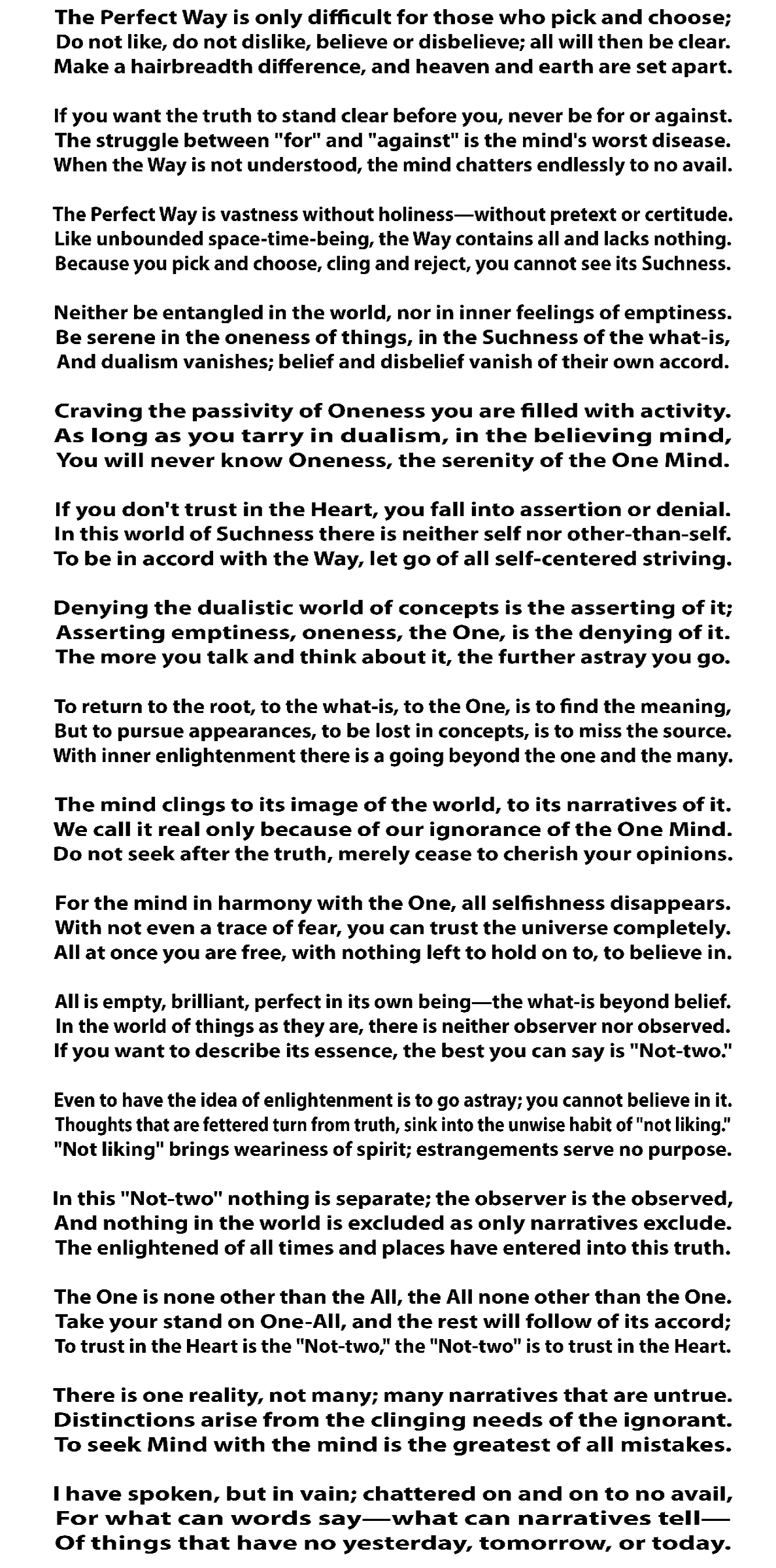
attributed to Jianzhi Sengcan
(aka Seng-Ts'an, ?-606 CE)
Xinxin Ming
or
Trust
in the Heart-mind
[Trust in and dance with the system: the doctrine of no doctrine, the paradigm of no true paradigms]

attributed to Jianzhi
Sengcan
(aka Seng-Ts'an, ?-606 CE)

On narratives/paradigms: 'There is one leverage point that is even higher than changing a paradigm. That is to keep oneself unattached in the arena of paradigms, to stay flexible, to realize that no paradigm is "true," that everyone, including the one that sweetly shapes your own worldview, has a tremendously limited understanding of an immense and amazing universe that is far beyond human comprehension. It is to "get" at a gut-level the paradigm that there are paradigms, and to see that that itself is a paradigm, and to regard that whole realization as devastatingly funny. It is to let go into not-knowing, into what the Buddhists call enlightenment.'
'People who cling to paradigms (which means just about all of us) take one look at the spacious possibility [vastness without holiness] that everything they think is guaranteed to be nonsense and pedal rapidly in the opposite direction. Surely there is no power, no control, no understanding, not even a reason [narrative/story] for being, much less acting, embodied in the notion that there is no certainty in any worldview. But, in fact, everyone who has managed to entertain that idea, for a moment or a lifetime, has found it to be the basis for radical empowerment. If no paradigm is right, you can choose whatever one will help to achieve your [life-driven] purpose. If you have no idea where to get a purpose, you can listen to the universe.' [Nature, who has all the answers.]
'It is in this space of mastery over paradigms that people throw off addictions [their purpose-driven consumer life], live in constant joy [when not dealing with life debilitating situations], bring down empires, get locked up, or burned at the stake or crucified or shot, and have impacts that last for millennia.'
'There is so much that could be said to qualify this list of places to intervene in a system. It is a tentative list and its order is slithery. There are exceptions to every item that can move it up or down the order of leverage. Having had the list percolating in my subconscious for years has not transformed me into a Superwoman. The higher the leverage point, the more the system will resist changing it—that's why societies often rub out truly enlightened beings.'
'Magical leverage points are not easily accessible, even if we know where they are and which direction to push on them. There are no cheap tickets to mastery. You have to work hard at it, whether that means rigorously analyzing a system or rigorously casting off your own paradigms and throwing yourself into the humility of not-knowing. In the end, it seems that mastery has less to do with pushing leverage points than it does with strategically, profoundly, madly, letting go [of belief-based paradigms to enter into not-knowing] and dancing with the system.' —Donella Meadows, Thinking in Systems: A Primer]